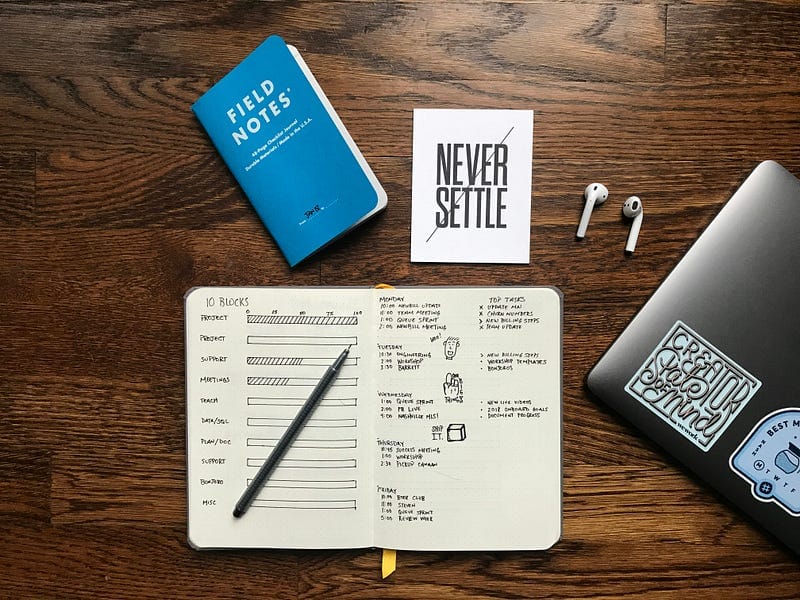7 Productivity Hacks I Learned from a Principal Software Engineer
Here are 7 powerful productivity hacks I learned from a Principal Software Engineer that changed the way I work!

WORK SMARTER, CODE FASTER!
7 Productivity Hacks I Learned from a Principal Software Engineer
You know those people who somehow get everything done and still have time to help others? That was Mark, a Principal Software Engineer I worked with for nearly two years. While I struggled to juggle stand-ups, code reviews, and overdue tickets, Mark floated between meetings, slinging clean pull requests, mentoring juniors, and somehow never seemed stressed.
Naturally, I had to figure out what magic he was working with.
Turns out, there was no magic — just small, deliberate habits. Here are the 7 productivity hacks I picked up from Mark that genuinely changed how I approach work.
1. Start Your Day with the “3-Point Plan”
Every morning, Mark would jot down three things he must accomplish that day — no more, no less. These weren’t always the biggest tasks, but the most impactful. It was his anchor.
“If I only get these three things done today, will it still be a good day?” — Mark
I adopted this, and it’s been a game changer. It forces you to prioritize impact over volume, and you end your day feeling productive, not just busy.
2. Timebox Ruthlessly — and Actually Stick to It
Mark didn’t just schedule blocks of time for coding, emails, and meetings — he treated them like sacred appointments. If he allocated 90 minutes for a feature spike, he’d stop when the timer hit.
Timeboxing isn’t new, but the discipline to actually stop when time’s up? That’s the secret sauce. It taught me to work with more intensity and less perfectionism.
3. Embrace “Progress Over Polish”
This one hit me hard. As a recovering perfectionist, I often found myself rewriting code that worked fine or tweaking docs until I forgot what I was even saying.
Mark’s motto: Ship it ugly, clean it later.
He believed in getting feedback fast and iterating often. Turns out, velocity matters more than elegance — especially in the early stages of a project.
4. Use Meetings as Tools, Not Traps
While the rest of us groaned at calendar invites, Mark saw meetings as tools — and he wielded them wisely. If a meeting didn’t have a clear agenda or outcome, he declined. No guilt.
When he hosted meetings, they were tight, focused, and ended early on purpose.
“If we can solve it async, we don’t need to meet. If we meet, it’s to decide, not just discuss.”
I’ve since cut down on meetings and reclaimed hours of deep work time.
5. Automate the Boring Stuff
Mark had scripts for everything — setting up environments, formatting code, even responding to common Slack questions.
His philosophy: If you’ve done it twice, it’s a candidate for automation.
I started small — a few shell scripts, some Git aliases — and quickly realized how much mental energy I was wasting on repeatable tasks. Automating even tiny things adds up over weeks and months.
6. Protect the First 90 Minutes of Your Day
This one is sacred.
Mark never checked Slack or email first thing. Instead, his first 90 minutes were for high-leverage work: writing code, designing architecture, or debugging something gnarly.
“You start your day in reaction mode, you stay in reaction mode.”
Since adopting this, my mornings are calmer, my focus is sharper, and I often get more done by 10 a.m. than I used to by 2 p.m.
7. Always Leave a “Breadcrumb” for Tomorrow
At the end of each day, Mark would leave a small note to his future self — a comment in code, a bullet point in Notion, or a quick journal entry.
It was never elaborate. Just enough context so that when he picked up the thread the next day, he didn’t waste 30 minutes trying to remember where he left off.
I’ve started doing the same, and it’s eliminated that awkward “Where was I?” slump that kills early momentum.
Final Thoughts
Working alongside a Principal Engineer like Mark taught me something profound: productivity isn’t about hustle or heroic effort. It’s about intentional habits that compound over time.
None of these hacks are groundbreaking. But when practiced consistently, they create a work rhythm that’s calm, focused, and surprisingly joyful.
Try one or two this week. You might be surprised how much lighter your workload feels — and how much more you actually get done.
Thanks for reading! If this resonated with you, feel free to share or leave a comment. And if you have a productivity hack of your own, I’d love to hear it.




